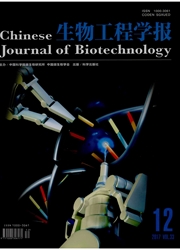

 中文摘要:
中文摘要:
利用高温细菌发酵,纤维素乙醇生产有望实现“生物质降解一乙醇发酵.乙醇蒸馏”过程的同步化,从而最大限度地降低纤维素乙醇的生产成本;这是一个目标更高、道路更远、科学性更强的可再生能源发展策略。纤维素乙醇高温发酵研究已经取得了重要进展,目前面临的主要挑战包括发酵乙醇的高温细菌的遗传转化系统不够稳定、缺少内源的高活性和耐热性纤维素酶,以及乙醇代谢调控机理有待进一步解析。这些科技难题将会在DNA生物合戍和进化技术、细胞生物学技术,以及合成生物学技术的发展中得到解决。
 英文摘要:
英文摘要:
Thermophiles can produce cellulosic ethanol at a high temperature where ethanol is directly distillated from fermentation, and biodegradation of lignocellulose can be simultaneously achieved when these thermophiles carry and express cellulase and hemicellulase genes. The simultaneous biodegradation, fermentation and distillation, a three-in-one process, can result in low production costs of cellulosic ethanol. We reviewed the advances and challenges in the approach to the three-in-one process, which refer to lignocellulases, regulation mechanisms, and genetic transfer systems.
 同期刊论文项目
同期刊论文项目
 同项目期刊论文
同项目期刊论文
 Thermostable DNA ligase-mediated PCR production of circular plasmid (PPCP) and its application in di
Thermostable DNA ligase-mediated PCR production of circular plasmid (PPCP) and its application in di Crystal structures of S-adenosylhomocysteine hydrolase from the thermophilic bacterium Thermotoga ma
Crystal structures of S-adenosylhomocysteine hydrolase from the thermophilic bacterium Thermotoga ma Identification and refinement of two strong constitutive promoters for gene expression system of Sch
Identification and refinement of two strong constitutive promoters for gene expression system of Sch 期刊信息
期刊信息
